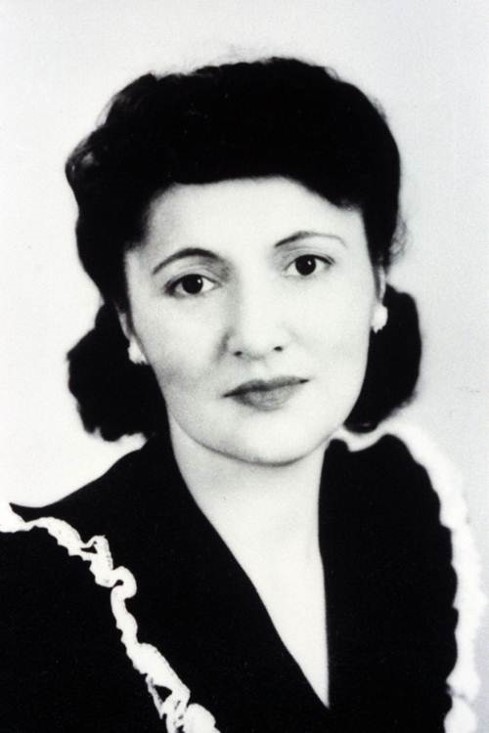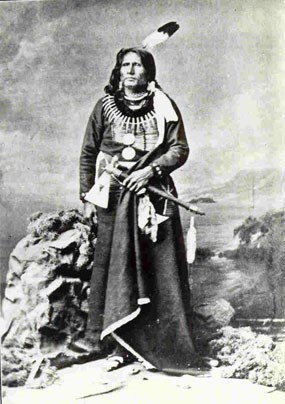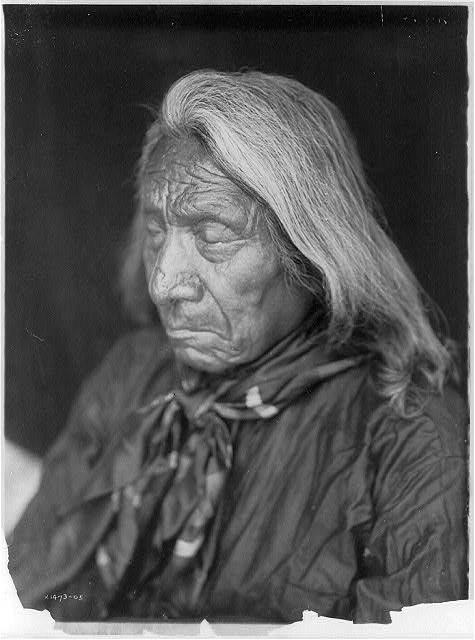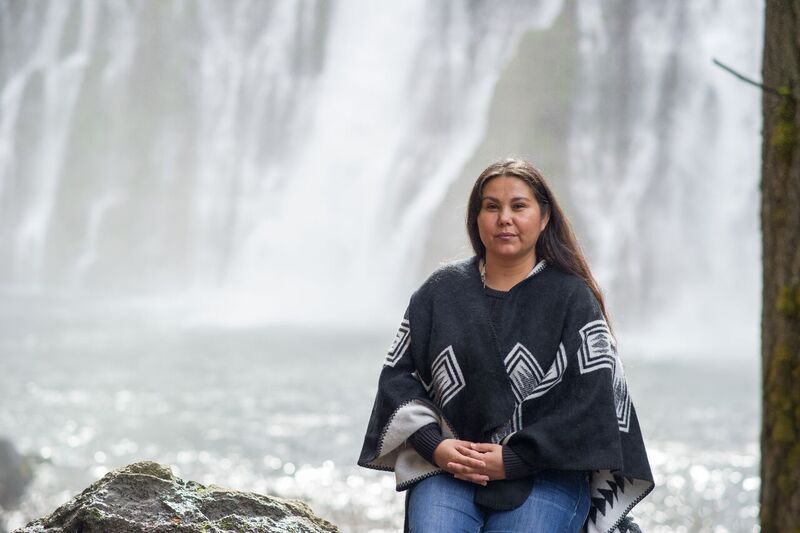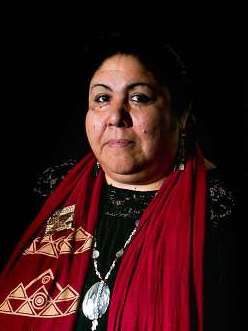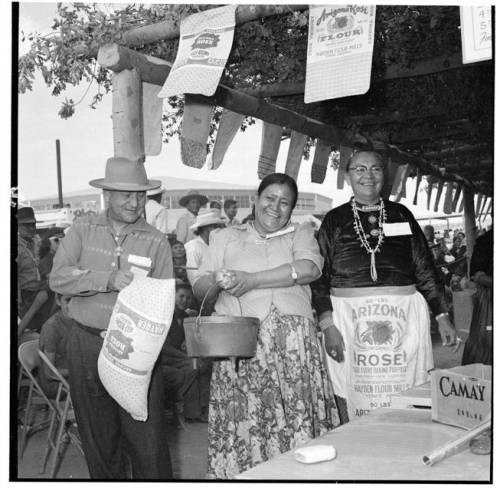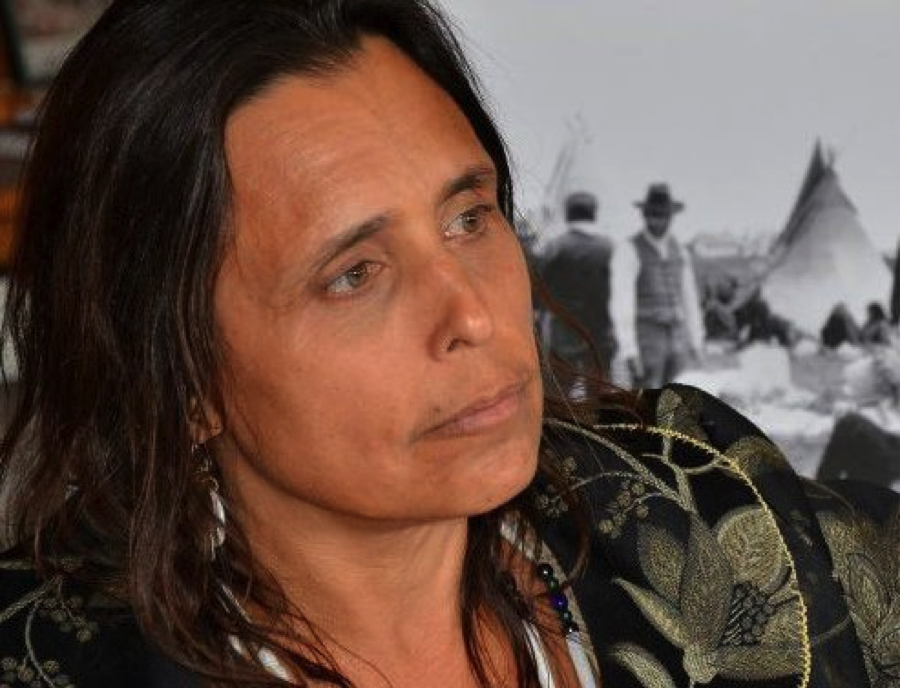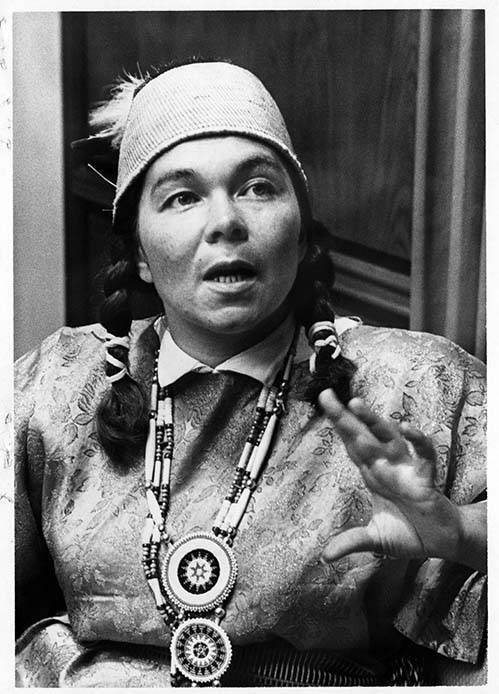15 Powerful Leaders to Celebrate on Indigenous People’s Day
Credit to Author: Ray Levy-Uyeda| Date: Mon, 14 Oct 2019 13:59:55 +0000
Alaska State Library, Amy Lou Blood Barney Collection. A record number of cities and states will celebrate Indigenous People’s Day and reject Columbus Day, which activists both Native and non-Native, argue commemorates genocide, rape, colonization, and cultural degradation. In 2015, professor and artist Melanie Yazzie, a founding member of The Red Nation, along with other Native activists, petitioned the city of Albuquerque, New Mexico, to officially establish Indigenous Peoples’ Day and this year the state followed suit.
Yazzie said that changing the holiday is an important consciousness-raising effort, but more importantly, it lays the groundwork for other organizing efforts that center the needs of Native communities. “It was beautiful,” Yazzie said. “I mean, people were crying. That’s how significant it was. And, it was a feeling I had when I saw Standing Rock…I think people had that feeling: our people are rising up and we’re actually winning something for once. Like we’re not being brutalized today. We won today.” Here are a few more artists, activists, and leaders you should know.
1) Elizabeth Wanamaker Peratrovich successfully ushered the United States’ first anti-discrimination act through the Alaska state legislature in 1945, which guaranteed “full and equal enjoyment” of public services and banned racist, discriminatory signage. Peratrovich also urged Native people to run for public office. In 2020, she’ll appear on the $1 coin in commemoration of her life and work.
2) Standing Bear was a civil rights leader and Ponca Chief who, after leaving the Great Sioux Reservation without federal approval, an illegal act at the time, challenged the legal framework of the 14th Amendment in court for the first time in defense of Native people. The 1879 case of Standing Bear v. Crook asserted that Native Americans had the right to equal protection under the Constitution and that the federal government could not prevent Native Americans from leaving the reservation.
3) Red Cloud was a Lakota war leader who, in 1866, engineered a war against the United States after the government started to build illegal forts along the Bozeman trail, which ran through Lakota territory. The war led to the 1868 Fort Laramie Treaty, which guaranteed Lakota land rights and directed that the government cease operations.
4) Morning Star Gali is a member of the Pit River Tribe in Northern California, a Leading Edge Fellow, organizer, activist, and board member of the Sovereign Bodies Institute who is committed to reducing the incarceration of Native people. Currently, she is working to examine the potential removal of frontier memorials commemorating colonization and cultural erasure.
5) Corrina Gould is an activist and community leader in Northern California. Gould co-founded Indian People Organizing for Change, works at the American Indian Child Resource Center and sits on the California Indigenous Environmental Association Board. Gould also co-founded the Sogorea Te Land Trust, which “reclaims ancestral territory in the Bay Area through direct action and non-profit partnerships.” In 2011, with other organizers, Gould led a 109-day occupation of sacred land in Vallejo, California, resulting in an easement with the city.
6) Annie Dodge Wauneka worked to improve public health in the Navajo community. She was the second woman elected to the Navajo Tribal Council, educated about water and housing conditions, and chaired the Tribal Health Committee. Wauneka created a Navajo language medical dictionary, which explained the importance of medical techniques like vaccinations to tribal members who may have been hesitant of American medicinal practices. In 1963, she was the first Native American to receive the Presidential Medal of Freedom.
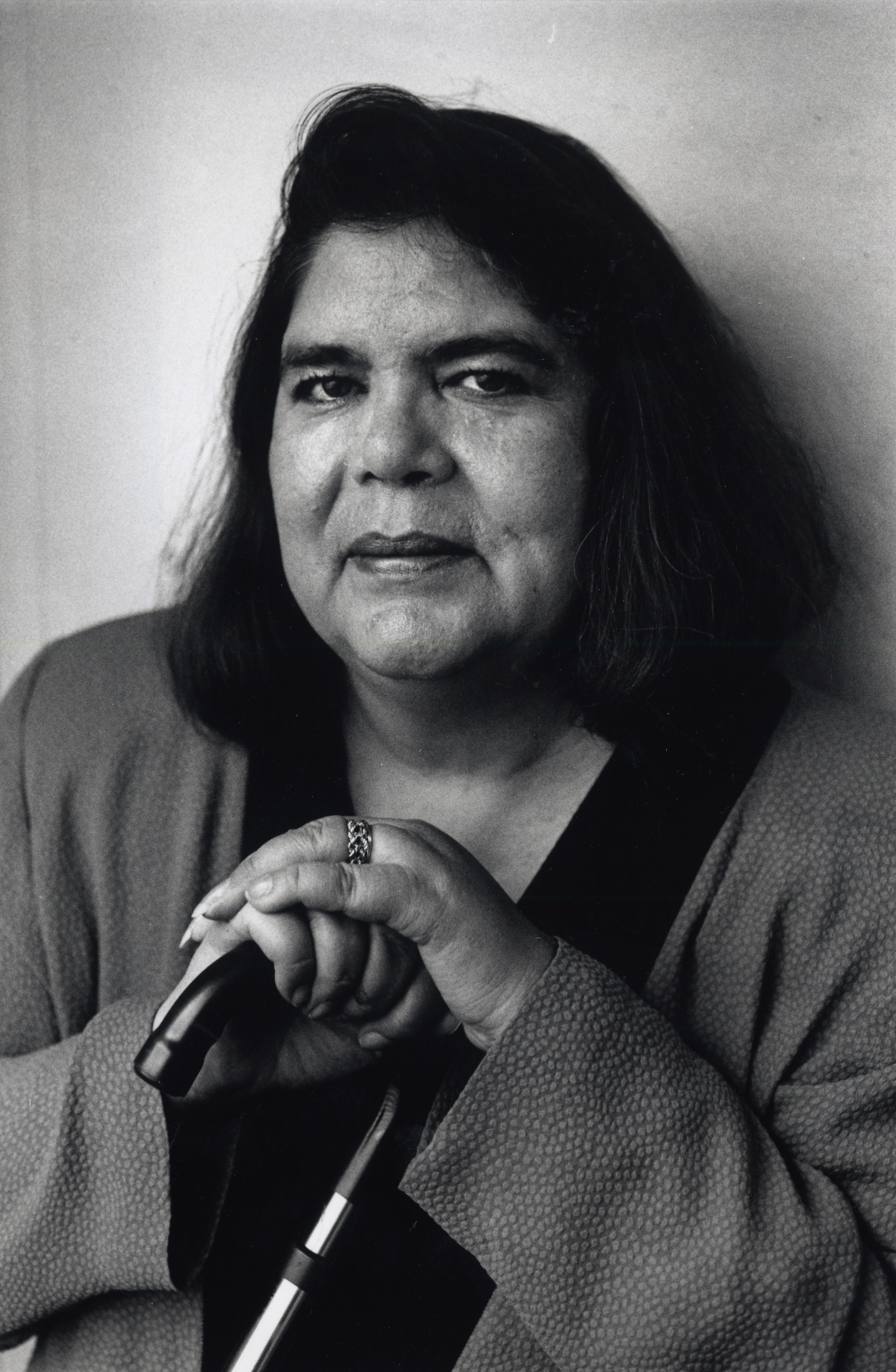
7) Wilma Mankiller was the first woman Principal Chief of the Cherokee Nation. She organized her community to build the Bell Waterline Project, an 18-mile water system that brought running water to tribal members. The project allowed Mankiller to push forward efforts to improve housing conditions and public health, ultimately creating the largest Indian-run healthcare system in the country. In 1998 she was awarded the Presidential Medal of Freedom.
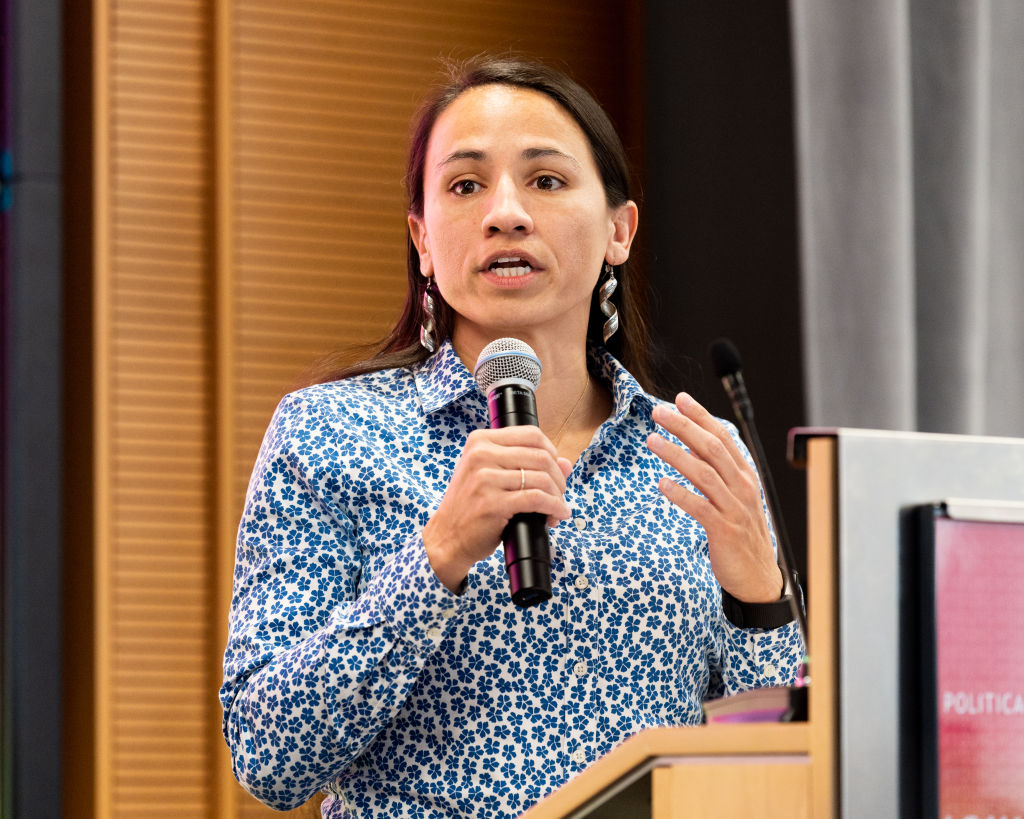
8) Sharice Davids is one of the two first Native people elected to Congress in 2018. As Kansas’ first out LGBTQ representative, Davids serves the 3rd district and advocates for reducing gun violence, wage equality specifically for Native women, and advocates for “greater inclusion of tribal voices in federal policy on national infrastructure issues.”
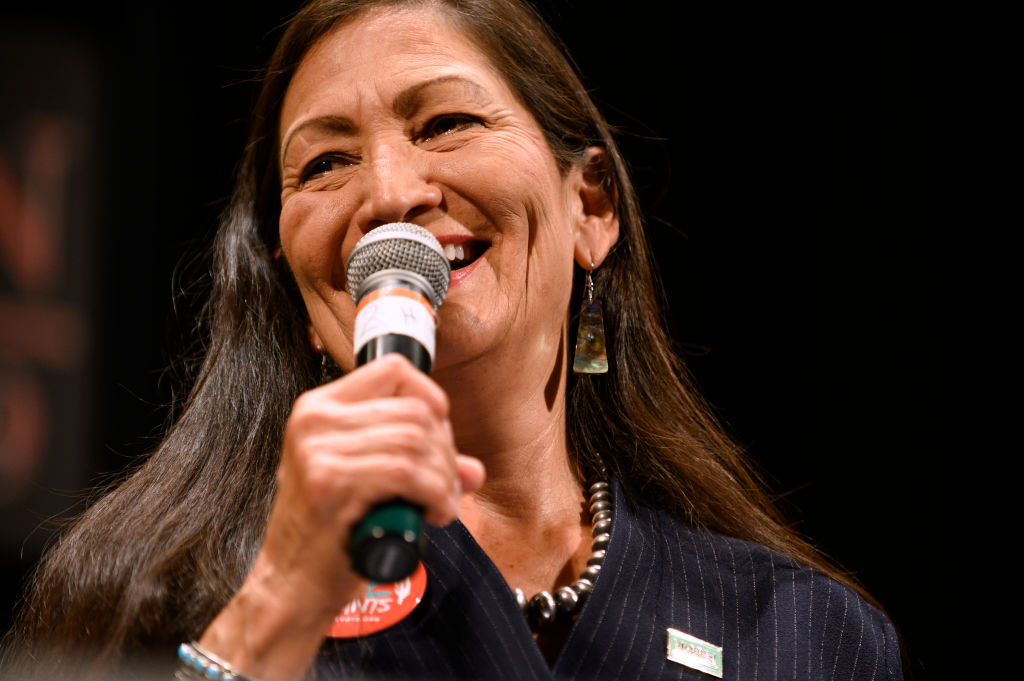
9) Deb Haaland, who was also elected to Congress in 2018, was the New Mexico Democratic Party Chair before serving as a representative of the 1st district. A staunch advocate for the Green New Deal, Haaland focuses on climate change and Indigenous rights and protection of sacred lands.
10 ) Winona LaDuke is a founding member of the Indigenous Women’s Network, Honor the Earth, and the White Earth Land Recovery Project. When LaDuke was 18 years old she presented to the UN about cultural preservation and still advocates for renewable food and energy systems.
11) Janet McCloud is a founding member of the Indigenous Women’s Network and activist who organized to uphold the fishing and hunting rights of Native people under the Medicine Creek Treaty of 1854. Her work led to the landmark court case of U.S. v. Washington, which affirmed Native economic, social and political rights in regard to fishing.
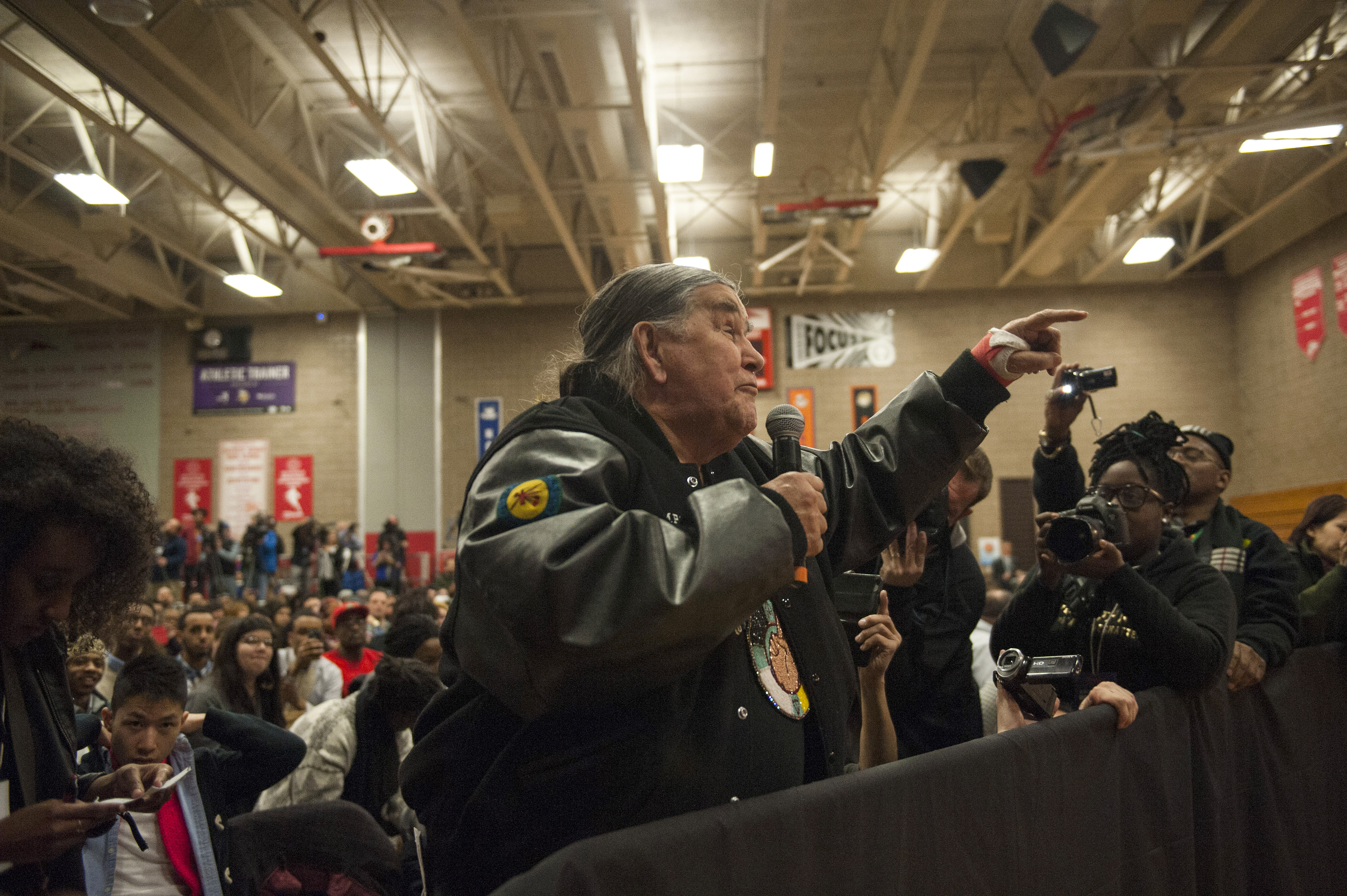
12) Dennis Banks founded the American Indian Movement with Clyde Bellecourt and Russell C. Means. Banks led a six-day occupation of the Bureau of Indian Affairs and a 71-day occupation of Wounded Knee, South Dakota, to demand that the federal government uphold broken treaties and draw attention to the treatment of Native Americans. Banks, Bellecourt and Means organized the 1972 Trails of Broken Treaties to Washington, D.C., and committed their lives to fighting Native oppression and poverty.
